Sign up to get the Sloww Sunday newsletter via email for free:👇
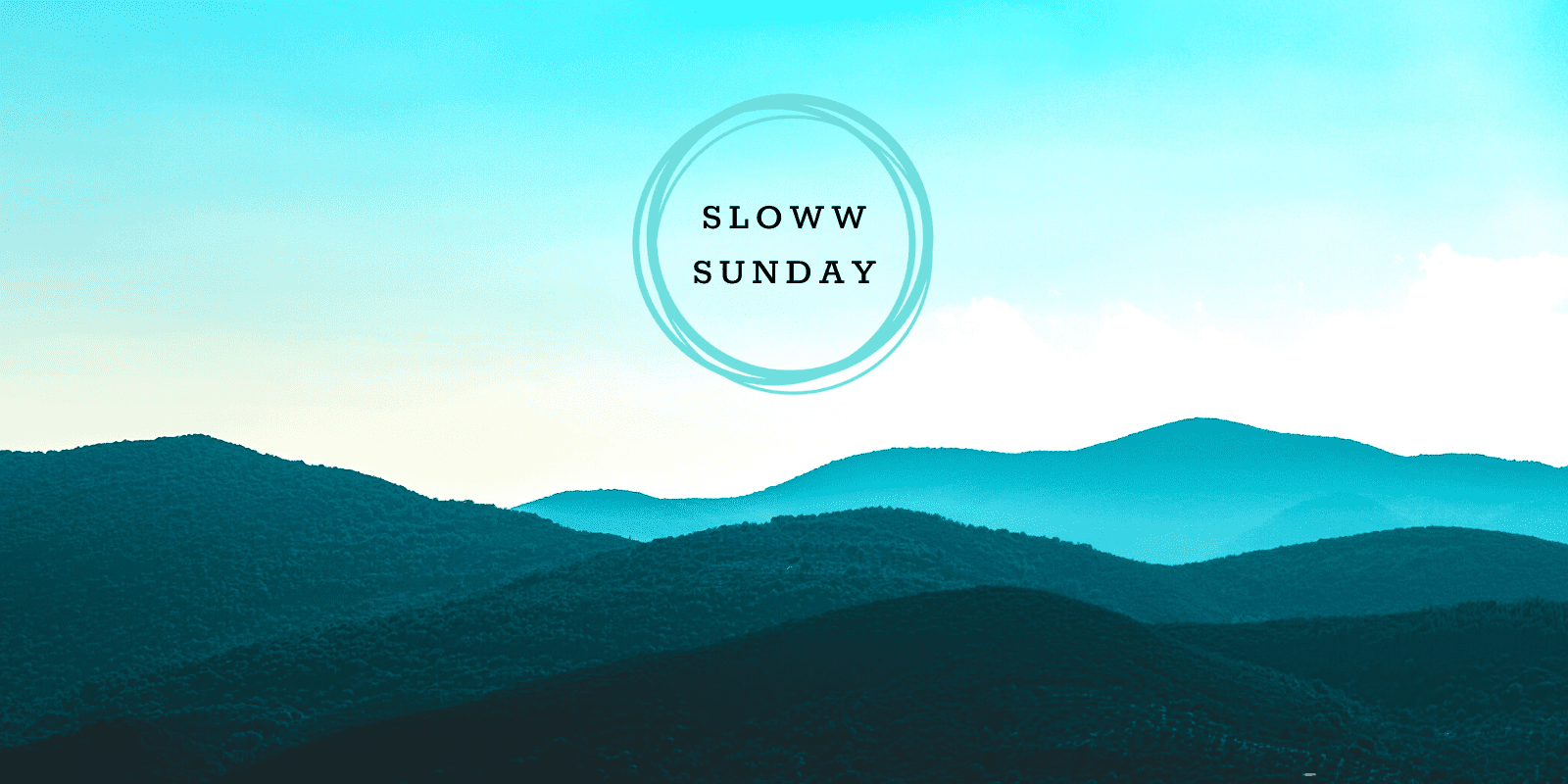
Sloww Sunday Newsletter 206 (Dec 29, 2024) — Digital Minimalism, True Vocation, Ancient Proverbs, & More
The Sloww Sunday newsletter sends to 10,000+ readers slowing down to the wisdom within and downshifting into deeper living. If you enjoy this issue, please help grow Sloww by forwarding this newsletter to others.
New to Sloww? Here’s what it’s about in a nutshell (which mirrors the newsletter sections below):
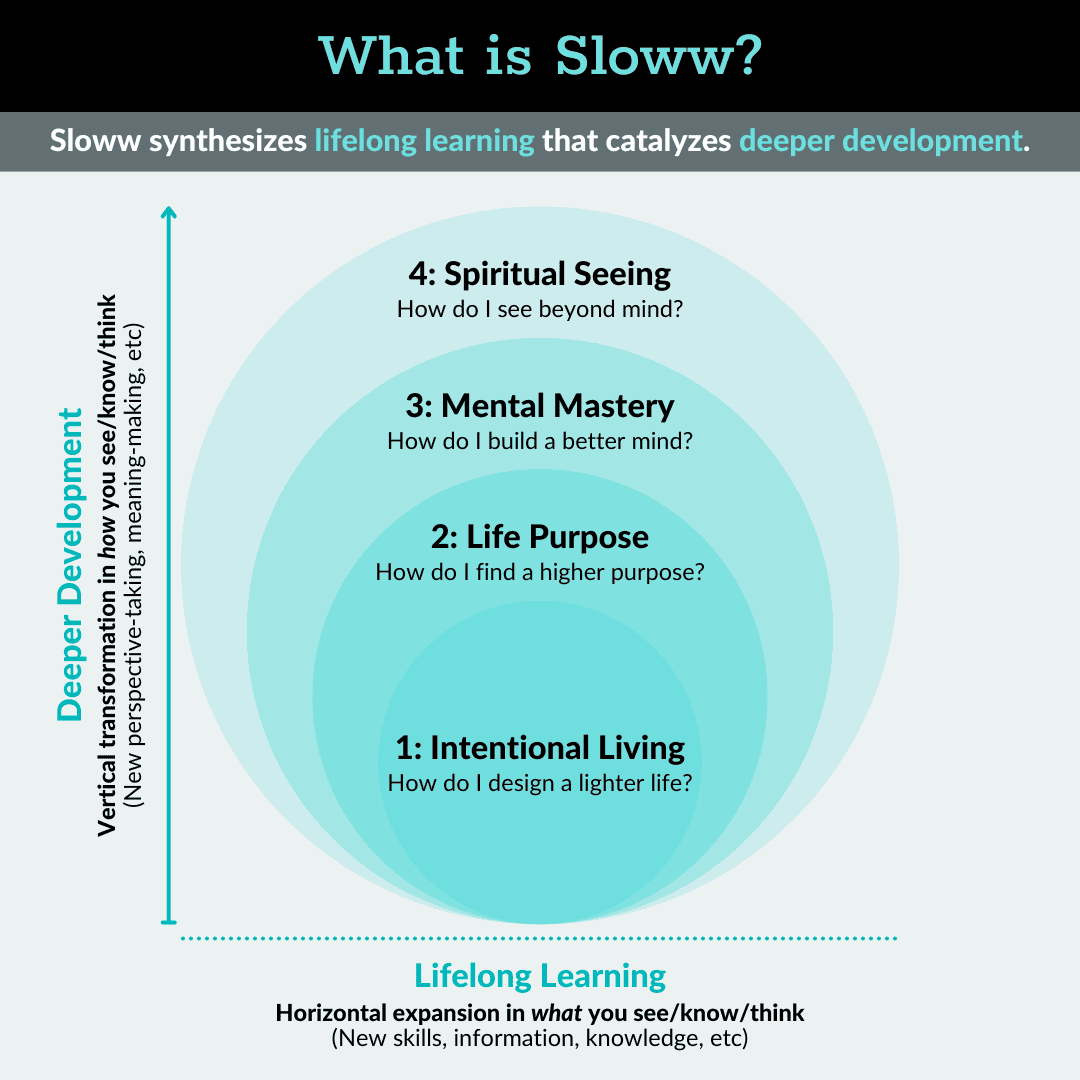
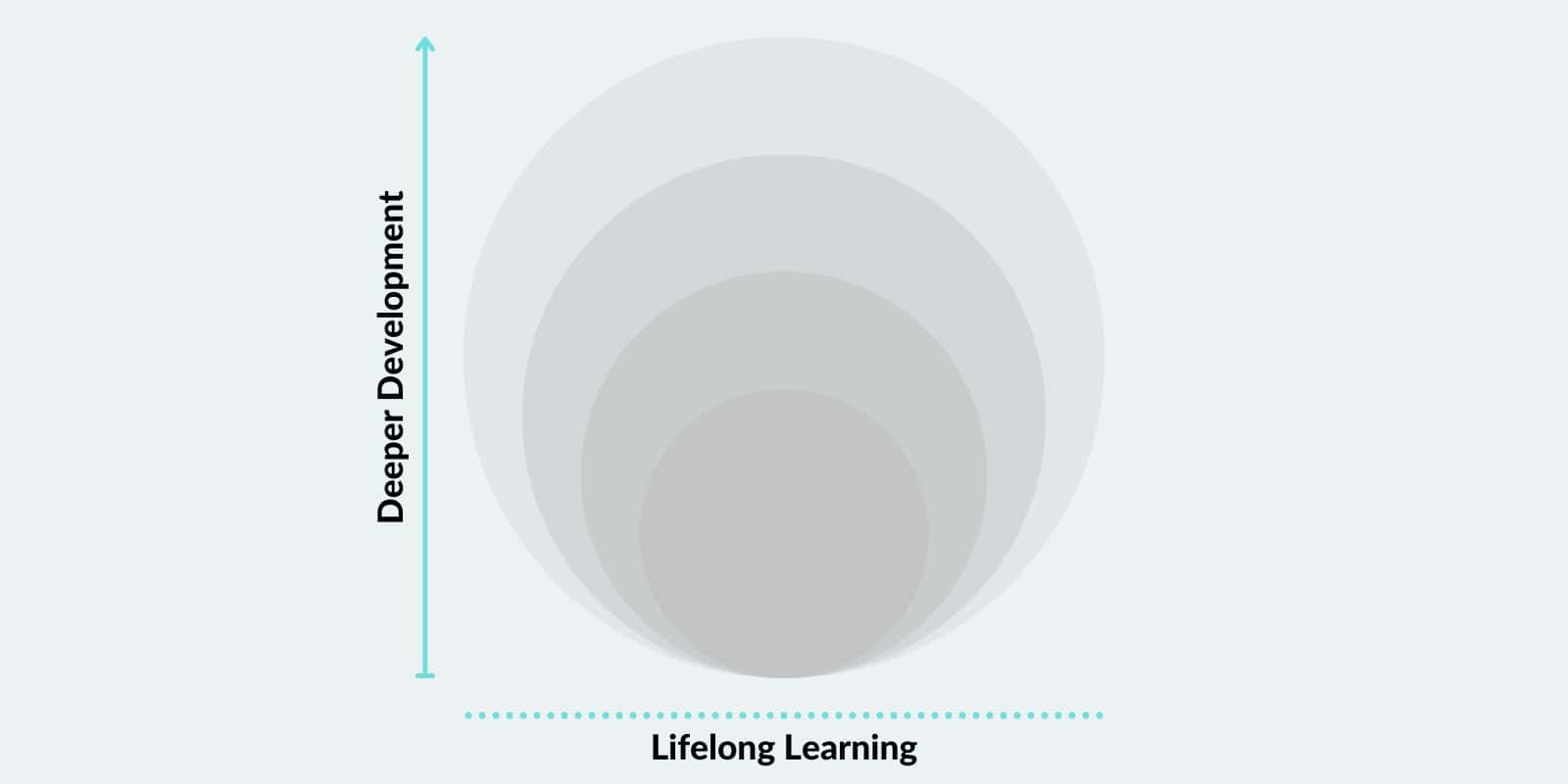
🌀 What actually leads to psychological development?
Despite all the hype about things like psychedelics, plant medicine journeys, expensive retreats in faraway lands, (insert any trendy experience you’d like), there’s a perennial problem that temporary ‘waking up’ states of consciousness don’t necessarily catalyze permanent ‘growing up’ stages of development. In Ken Wilber’s words:
- “It’s one thing to tap into a higher level; quite another to actually live there! … Although a person can have a peak experience of a higher dimension, the person’s self still has to grow and develop and evolve in order to permanently accommodate to those higher or deeper dimensions, in order to turn an ‘altered state’ into a ‘permanent trait.'”
So, if we can’t necessarily rely on ‘waking up’ experiences, is there anything else that more reliably leads to permanent psychological development? In other words, what actually shifts subject into object, makes the unconscious conscious, converts temporary states into permanent traits, transforms the invisible into the visible, etc? For me, it started with an existential crisis followed by years of cognitive dissonance—kicking off a never-ending and ever-deeper cycle of questioning and learning that has byproducts of developing. There’s a good reason people say suffering—when your current way of thinking is no longer working—is the ultimate teacher (see Sloww Sunday #185).
Susanne Cook-Greuter (scholar of ego development theory) talks about considerable discomfort, persistent discrepancies, and disorienting dilemmas:
- “Suffering is not a prerequisite for transformation, yet it often accompanies the move to a new level … While possibly exciting, stage change is also likely accompanied with considerable discomfort, pain, loss, and uncertainty … The need for meaning drives people to integrate into their existing conceptual frames of reference every difference that enters awareness by either labeling it or filtering it out. Persistent discrepancies that cannot be accommodated through horizontal integration or defensive mechanisms may induce a restructuring of the previous framework (mindset) into a more coherent new whole … Life urges us again and again to solve disorienting dilemmas and discrepancies by responding with an enlarged and broader perspective that allows the issue to be solved at a new level of understanding.”
Jack Mezirow (founder of transformative learning theory) talks about disorienting dilemmas, emotional disturbance, and critical reflection:
- “When a person encounters something that does not fit with his or her expectations of how things should be based on past experience, the choices are to reject the unexpected or to question the expectation … You encounter problems in which the old ways of thinking and reacting simply don’t work. And, you become aware that they don’t work, and you get really upset and frustrated and emotional about it because something isn’t working for you … Often, emotional disturbance is the key to having a really successful transformative learning experience. If somebody really feels that they can’t use an old way of thinking, they’re going to have to open themselves up to a new way … The central concept that I’m really interested in, in the context of adult learning, has to do with critical reflection of assumptions.”
Joseph Campbell talks about trials & revelations and deaths & resurrections on the hero’s journey:
- “What all the myths have to deal with is transformation of consciousness: you’re thinking in this way, and you have now to think in that way … (Consciousness is transformed) either by the trials themselves or by illuminating revelations. Trials and revelations are what it’s all about … This is a fundamental psychological transformation that everyone has to undergo … To get out of that posture of psychological dependency into one of psychological self-responsibility requires a death and resurrection, and that is the basic motif of the hero journey: leaving one condition, finding the source of life to bring you forth in a richer or more mature condition.”
I could go on and on with similar examples (for instance, Ken Wilber on the developmental ‘deaths’ of the self outlined in Sloww Sunday #189).
0️⃣ Explore More: 50+ posts on Lifelong Learning & Deeper Development (Sloww Stage Support)
🧠 Featured Product: Synthesizer Course: The Flagship Course for Synthesizing Minds
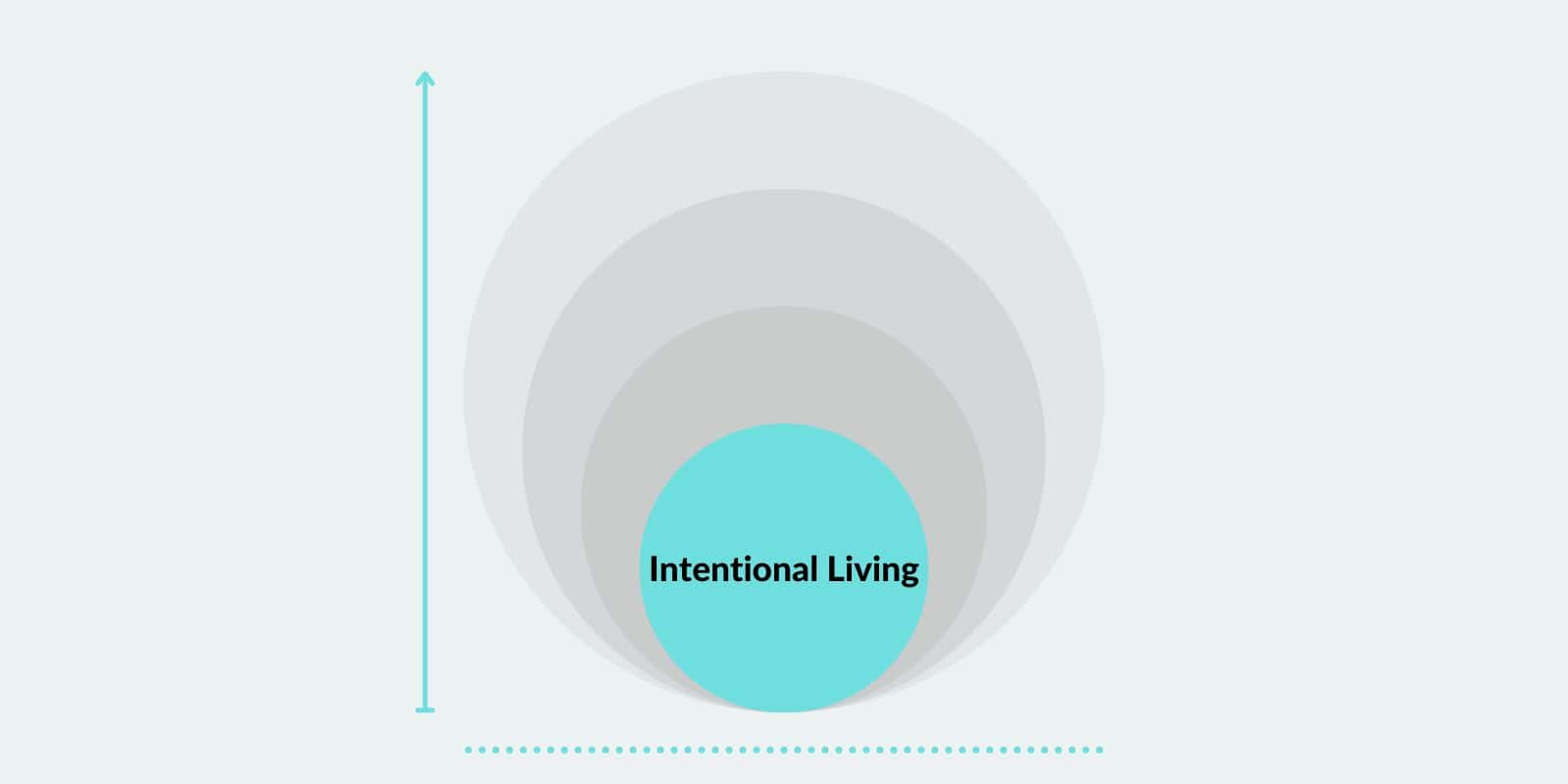
📱 The Philosophy of Digital Minimalism
Sloww has 700+ articles on the site, but do you know the very first one? Digital Minimalism Defined & 10 Digital Declutter Tips.
I even highlighted Cal Newport’s digital declutter experiment while it was still in progress in 2018. Now, all these years later, I finally knocked out his book Digital Minimalism (Amazon | Summary). This new book summary covers the principles of digital minimalism, the step-by-step digital declutter process, and more.
“Digital minimalism is a philosophy of technology use in which you focus your online time on a small number of carefully selected and optimized activities that strongly support things you value, and then happily miss out on everything else.” — Cal Newport
1️⃣ Explore More: 100+ posts on Intentional Living (Sloww Stage 1)
😃 Featured Product: The Hierarchy of Happiness: 100+ Powerful Perspectives on How to be Happy (Free eBook)
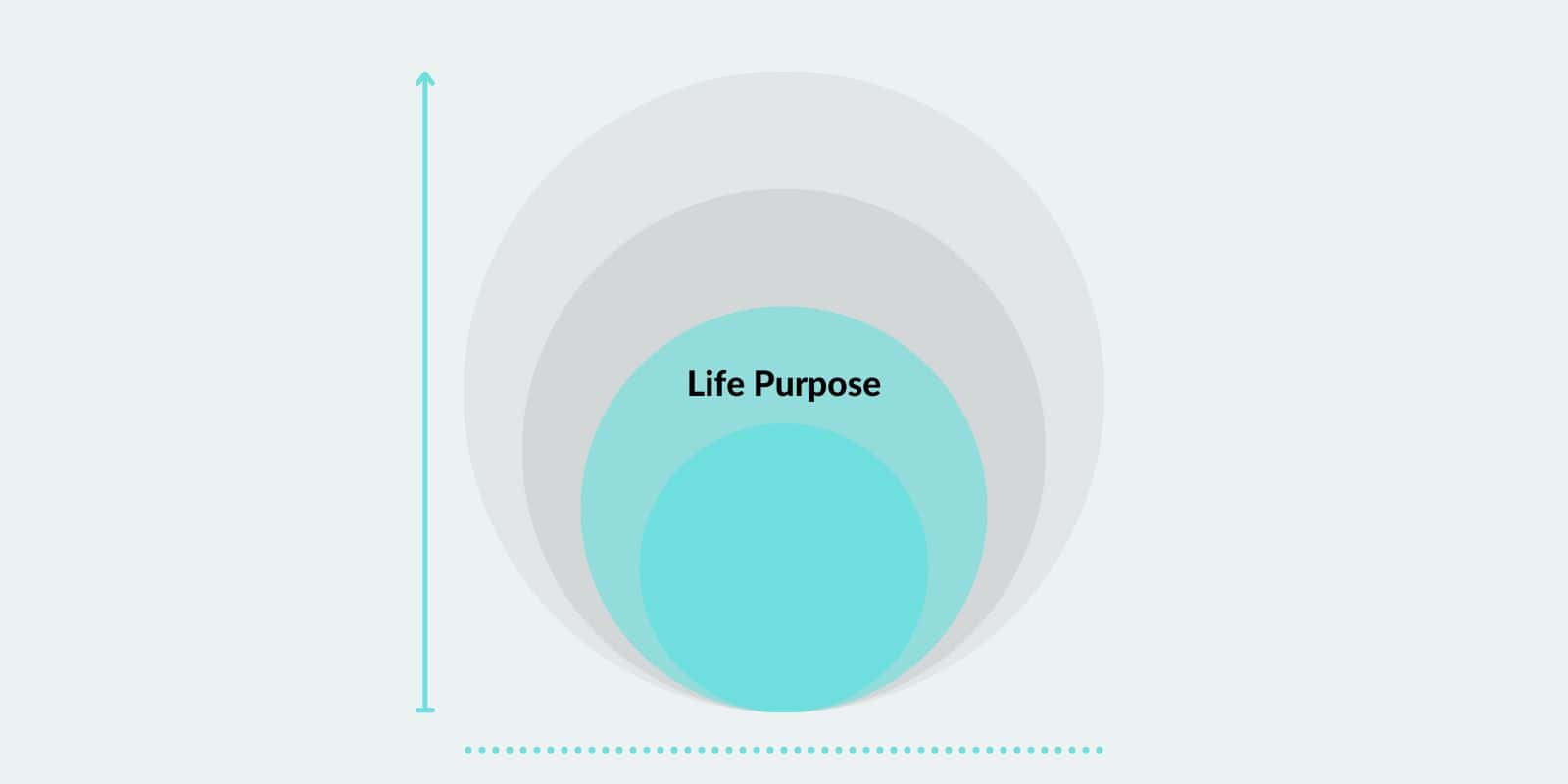
🧭 25th Anniversary of “Let Your Life Speak”
To celebrate the milestone, I revisited my notes from Parker Palmer’s Let Your Life Speak: Listening for the Voice of Vocation (Amazon | Summary). This was one of the first books I read on my journey to find purpose, and it’s still one of the best years later.
What vocation is not:
- ‘What ought I to do with my life?’
- A goal that I pursue or achieve; something that comes from willfulness.
- A voice ‘out there’ calling you to become something you are not.
What vocation is:
- ‘Who am I? What is my nature?’
- Something I can’t not do, for reasons I’m unable to explain to anyone else and don’t fully understand myself but that are nonetheless compelling.
- A calling that I hear; a gift to be received; a voice ‘in here’ calling me to be the person I was born to be. Vocation comes from listening. I must listen to my life and try to understand what it is truly about—quite apart from what I would like it to be about.
“Before I can tell my life what I want to do with it, I must listen to my life telling me who I am. I must listen for the truths and values at the heart of my own identity, not the standards by which I must live—but the standards by which I cannot help but live if I am living my own life … Before you tell your life what you intend to do with it, listen for what it intends to do with you. Before you tell your life what truths and values you have decided to live up to, let your life tell you what truths you embody, what values you represent.” — Parker Palmer
Sloww Premium members have access to the companion post: 🔒 How to Find Your True Self with “Let Your Life Speak” by Parker J. Palmer (+ Infographic)
2️⃣ Explore More: 50+ posts on Life Purpose (Sloww Stage 2)
🧭 Featured Product: Ikigai 2.0: A Step-by-Step Guidebook to Finding Life Purpose & Making Money Meaningfully (+ Bonus Workbook)
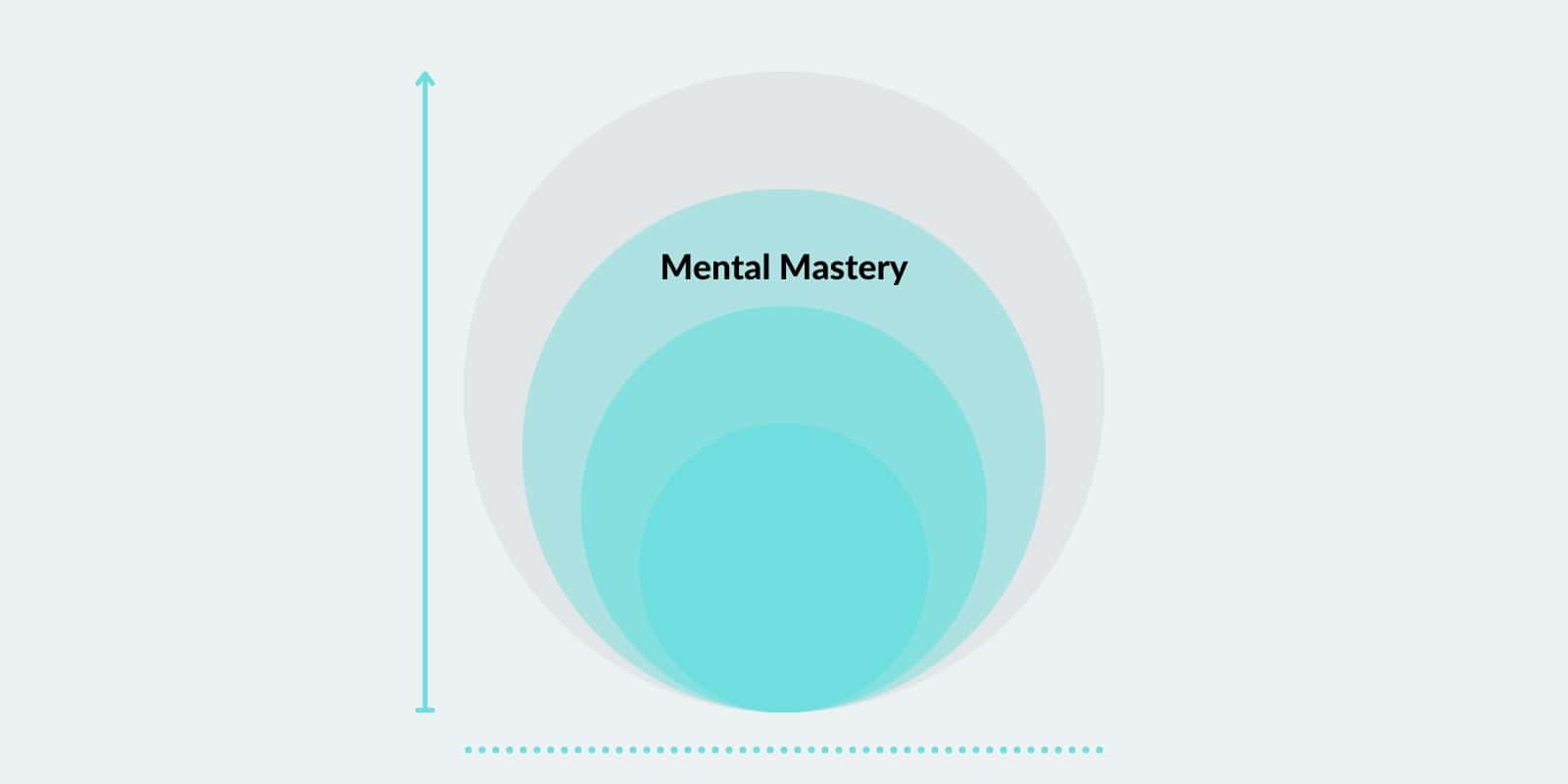
🤔 Why am I me, and not someone else?
The ‘vertiginous question’ (Wikipedia) asks why, of all the subjects of experience out there, this one (the one corresponding to the human being referred to as you) is the one whose experiences are live? In other words: why am I me, and not someone else?
You know the ‘hard problem of consciousness’? Well, apparently some call this question the ‘even harder problem of consciousness’. It comes from Benj Hellie’s paper (substitute yourself in the place of ‘Hellie-subject’):
- “The Hellie-subject: why is it me? Why is it the one whose pains are ‘live’, whose volitions are mine, about whom self-interested concern makes sense? That thing there in the objective world: what is so special about it? Why doesn’t some other subject of experience there in the objective world ‘go live’ in this way … why not instead it?” — Benj Hellie
Pair with the concept of ‘open individualism’ (Sloww Sunday #201)
3️⃣ Explore More: 100+ posts on Mental Mastery (Sloww Stage 3)
🧠 Featured Product: Mini Mind: 365 Days of Bite-Size Brain Food
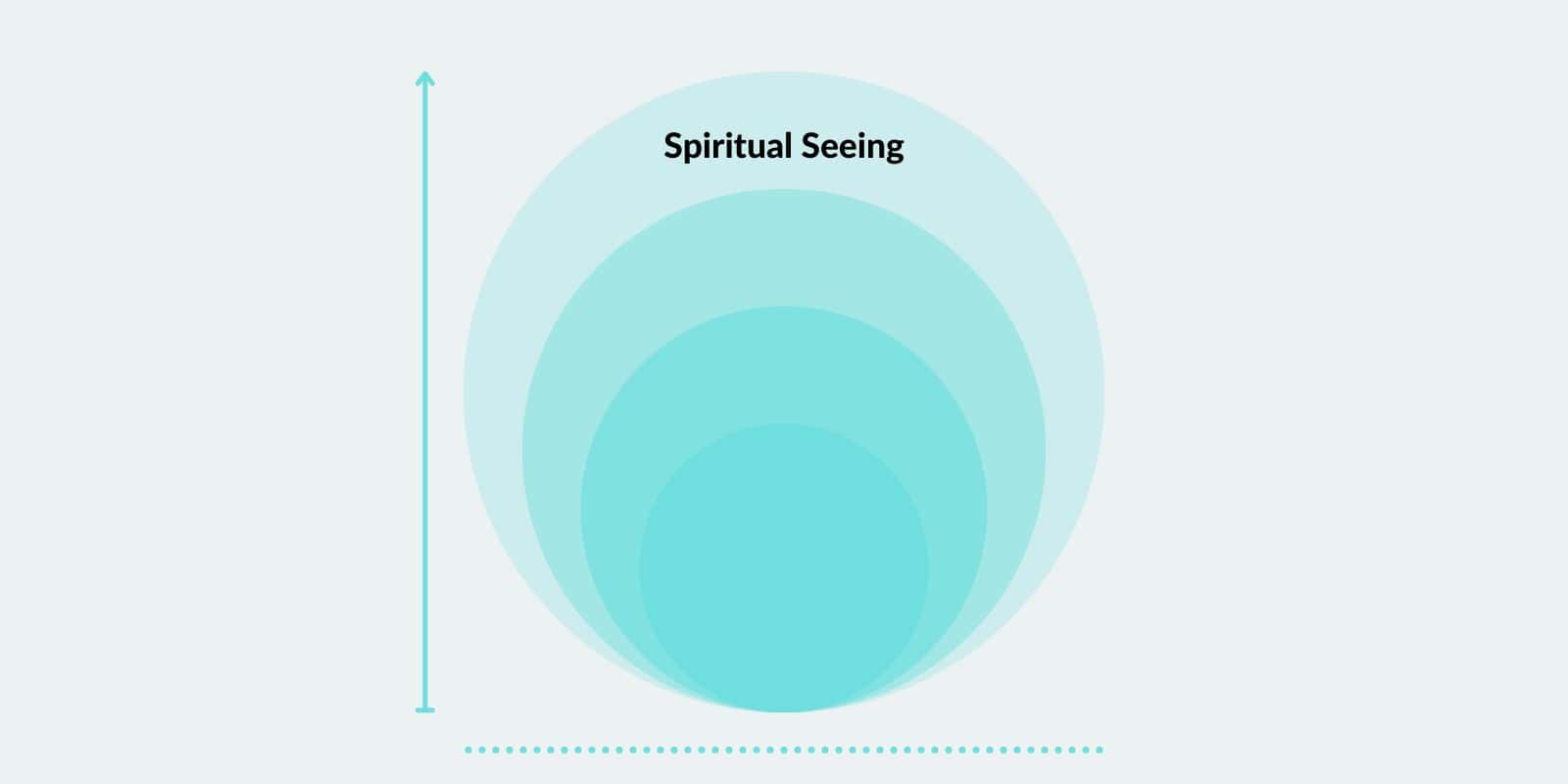
📜 Ancient Proverbs for Modern Living
Over the years, I’ve apparently collected quite a list of old proverbs, sayings, maxims, adages, etc. Here are some to ponder:
- “Do not speak—unless it improves on silence.”
- “Talk doesn’t cook rice.”
- “If the hand does nothing, the mouth does not chew.”
- “Once you carry your own water, you will learn the value of every drop.”
- “The frog in the well knows nothing of the great ocean.”
- “Shallow rivers are noisy. Deep lakes are silent.”
- “Knowledge is only a rumor until it lives in the muscle.”
- “A donkey with a load of holy books is still a donkey.”
- “One who asks is a fool for a moment. One who does not ask is a fool for life.”
- “Vision without action is a daydream. Action without vision is a nightmare.”
- “The child who is not embraced by the village will burn it down to feel its warmth.”
- “Those who have nothing to lose are very rich.”
- “Once the game is over, the King and the pawn go back in the same box.”
- “One who hurries has one foot in the grave.”
- “When death comes to find you, may it find you alive.”
4️⃣ Explore More: 100+ posts on Spiritual Seeing (Sloww Stage 4)
👣 Featured Product: Wise Walk: 365 Days of Enlightening Exercise
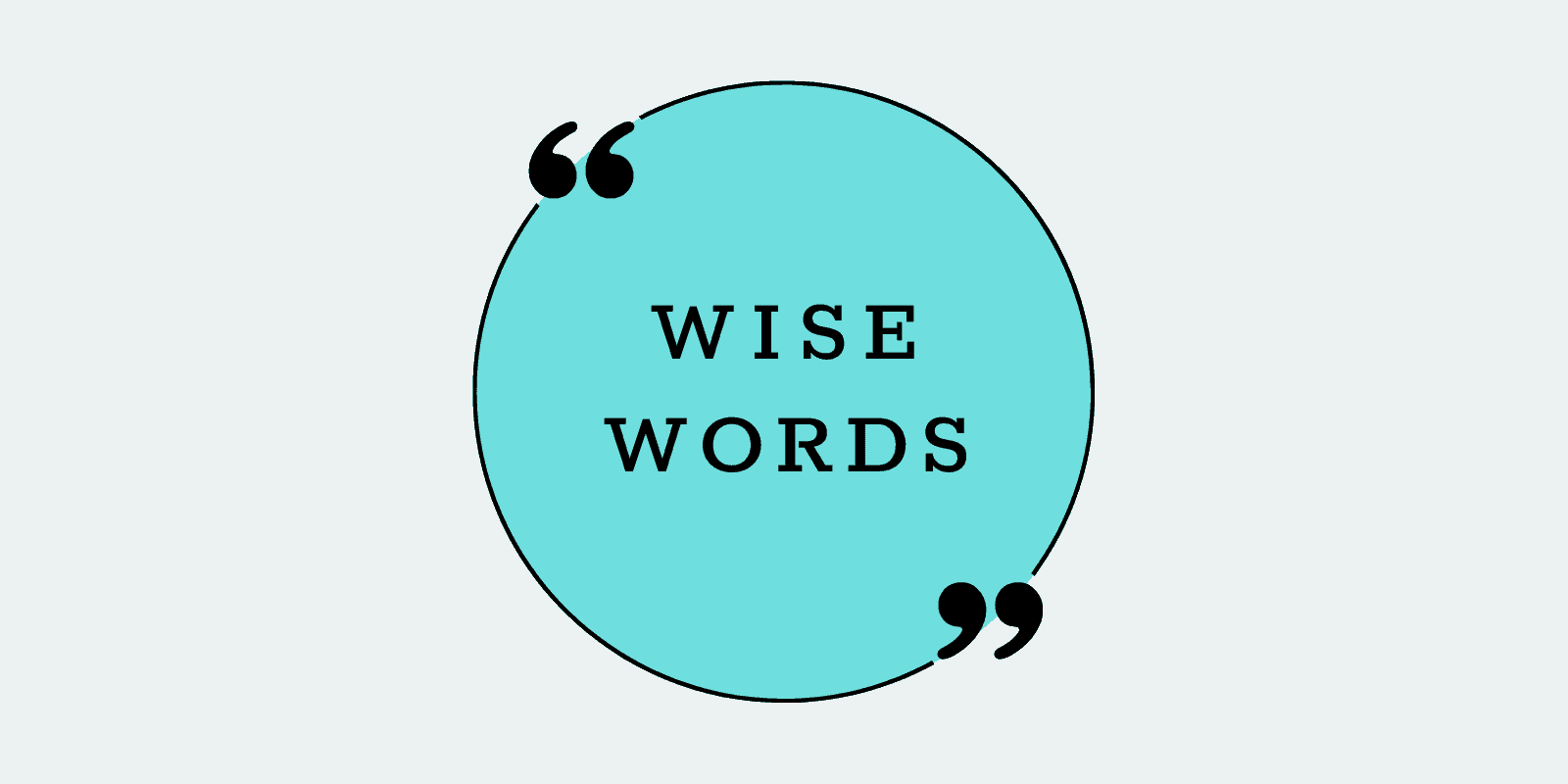
Deep:
- “To understand another person, you must swim in the same waters that drowned them.” — Unknown
Pair with:
- “We can see other people’s behaviour, but not their experience.” — R. D. Laing
- “If you could see the world the way I see it, you’d understand why I behave the way I do.” — Axiom of Clinical Psychology
- “To know all is to forgive all.” — Unknown
Share: Sloww Sunday currently sends to 10,000+ students of life each week. If you enjoyed this issue, please help grow Sloww by forwarding this newsletter to some friends and family. It’s free for them to subscribe here.
Support: Sloww is a one-human labor of love (it’s just me over here 👋). Your support keeps the site ad-free and invests in me while you invest in yourself—a true win-win! There are free and financial ways to support.
Speak: Have something you want to say, or just want to say hi? It’s always greatly appreciated. Just leave a comment or reach out socially.
All the best,
Kyle Kowalski
Founder, Sloww




